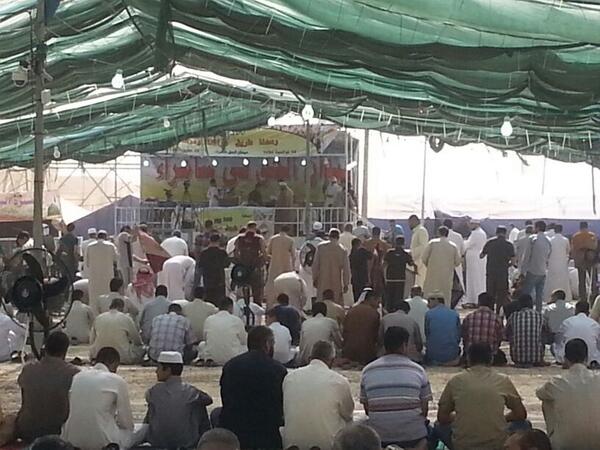"There are few moments as personally satisfying to me these days as perusing the overnights on Friday mornings." So says an actress friend. Loudly, at a party this weekend. And her comment was greeted with loud laughter and, yes, some applause.
This is a story some don't want to hear so you might want to stop reading now.

But assholes make a lot of enemies and when their downfall comes -- and it always does -- a lot of people make time to savor it.
In the 80s, TV offered a lot of bitches. No, we're not referring to Donna Mills' Abby,
Joan Collins' Alexis, Ana-Alicia's Melissa,
Diahann Carroll's Dominique or Michelle Phillips' Ann. If you guessed we were speaking of
Cybill Shepherd,
Roseanne or
Candice Bergen, you'd be closer to the truth.
But the reality there is Roseanne fought for her show and fought for funny and damn well knew what she was doing. If ABC had known -- or known enough to get out of her way, there would have been no problems. ABC knew what was going on with
Moonlighting -- a 'creative genius' self-medicating and unable to meet deadlines was the problem, not Cybill or Bruce. As for CBS, they hated Candice and feared her because Bergen had Dianne English's back and that's why
Murphy Brown was not messed with by the network.
In our culture, we have a need to portray women as bitchy. And surely some are and surely all can be -- including ourselves -- at some point. But here's the thing about a woman being bitchy, if Roseanne has asked for, as star of the network's most successful sitcom, a new writer to be added and the network says yes but the network doesn't deliver, is Roseanne a bitch for bringing the show to a standstill until the promise is honored?
There are a lot things at play here including how women's strength is judged.
Equally true, when women fight, if they want to win, they have to use everything with these networks.
Step out of line -- ask
Suzanne Somers, and they will try to crush you, no matter how much money you're bringing in for the network.
Powerless TV execs have always enjoyed screwing over women -- think of the glee with which CBS savagely fired Judy Garland.
And these stories just repeat over and over every year with different women.
That's because TV is the story of men who are allowed to fail over and over. Women aren't so lucky.
Look at Lucille Ball who made the CBS network. She starred in three long running, successful sitcoms and then did one that tanked. With one that tanked, sitcoms were history for Lucille.
And it was over for Lucy with so much glee -- from the TV execs to The Water Cooler Set.
TV needs women and the execs have never liked that need. It's what leads to 'missing moms' -- all those 'family sitcoms' of the 80s where Mom was dead or had split.
The same behavior rated bitchy in a woman is seen as no big deal in a man. Kelsey Grammer, for example, never had to go to the extremes Roseanne did because, on
Frasier, the minute Grammer was unhappy, the response was panic that Grammer wasn't happy, not jokes at his expense, and a rush to make things right.
Male stars on TV shows are catered to. So when one of them goes out of his way to be an utter bitch in spite of that catering? It really registers in the community.
Michael J. Fox is an example of an utter bitch.
If that made you gasp, console yourself with the fact that he's kinder and gentler on the set of
The Michael J. Fox Show then he was on his other two sitcoms.
Michael was a total ass on
Family Ties and on
Spin City. He was the biggest bitch in the world and, with his second sitcom, it was really getting across in the first season. His disgusting treatment of Carla Gugino was so awful the press even started to pick up on it and the press never picks up on male divas. And it only got worse after season one. It was so bad, in fact, that ABC was going to pull the plug on the show and that's when Michael J. Fox went public with his Parkinson's disease and ABC, not wanting to look cruel, dropped plans to axe the show.
Parkinson's did not make for a kinder and gentler Michael. His recent bizarre attack on Taylor Swift was a public example of the private Michael J. Fox.
And it's for that reason that so many are enjoying the weekly ratings death of his NBC sitcom. The actress we quoted at the top? She worked with Fox early on. It was not pretty. He screamed at her on the set constantly. He mocked her looks (she's considered very pretty), he ridiculed her with his mincing attempts to parody her. And she was nothing then. She was no threat to him. Her career was just starting and he was a TV and film star -- one who took delight in making her life a total hell. A producer took her to the side after Fox had left her in tears yet again and the producer explained that Fox was a bitch and he treated everyone like that. She made it through working with him and vowed she'd never do so again.
And she hasn't.
When
Spin City was tanking, her star was on the rise (where it's remained) and suddenly Fox's people were calling her to guest star. She said no through her agents. What followed was one floral delivery after another with 'personal' messages including one signed "Mikey." She said no over and over through her agent who informed her that Fox was convinced he could change her mind if he spoke to her personally. She told her agent to convey there would never, ever be a personal conversation.
The floral deliveries stopped. The requests to her agents ceased.
Until last July when he went through the whole process again.
She threw out the flowers and told her agent to convey she wasn't interested in doing any "Hallmark TV moments." She notes that a lot of people he treated badly in the past leap at the chance to work with him now because their careers have not gone well "but even if I was existing on Ramen and ketchup soup, I would still say no."
That's how rude and evil Michael J. Fox was to co-workers.
And why Friday mornings bring so much joy to so many when the overnights show, for example, a very successful Robin Williams sitcom (CBS'
The Crazy Ones co-starring Sarah Michelle Geller) and a very unsuccessful
The Michael J. Fox Show.
When Fox returned to NBC, the laughter at ABC was hard not to hear. They weren't interested in him. He was a prima dona who refused to do the show they thought that they were doing. They thought they were putting on a show with him and a woman they had under contract following a previous ABC success. But Fox didn't want to share the spotlight and didn't want anyone near his level of fame. Later on, when his show was one ratings mess after another, ABC forced Heather Locklear on him and only then did the show become a success.
Early on in discussions for the new sitcom, NBC suggested maybe Locklear could play his wife and Fox appeared to play along. Appeared to. He had no interest in sharing the spotlight of what he thought would be his triumphant return.
When NBC caught on that he did not want Locklear as a co-star, they suggested a number of comedic actresses for the role including Christina Applegate -- all of whom Fox derided and insulted. As one NBC suit told us over the phone Tuesday, "When he picked her [Betsy Brandt] to play his wife, we all got the feeling it was
Paul Reiser all over again."
Yes, another man who wants to be in a sitcom but doesn't want to have a funny wife.
So he insists on Brandt who has no comedic experience (she's also over a decade younger than him). Christina Applegate or Lisa Kudrow could add something to the thankless and dull role due to their training and skill. Brandt tries to add meaning -- as if the show were a drama -- and that just leaves her as the latest wet blanket TV wife.
Another story about the development of the show. Early on, a creative type pitched the notion that Fox's TV anchor man could have been a real asshole but, when he develops Parkinson's, the man becomes more understanding of the world around him.
Fox's response?
He smiled, stood, waived the man over, put a hand on the man's back and walked along the conference room with him.
"That's an interesting idea," Fox said as he gestured for the man to walk through an open doorway. As soon as the man did, Fox slammed the door shut and boomed, "Get rid of that asshole!"
'That asshole' probably was the last person to suggest that the show had a point of view.
It's a mess.
A tired, boring mess. We think this is exactly the sort of bad sitcom that put Screen-Gems out of the business in the 1970s. It's about nothing. The stories add up to nothing. There's no sense of continuity from one episode to the next and the workplace scenes are odes to sexual harassment.
NBC made the mistake of giving Fox a full season commitment -- a detail that leads friends at ABC to laugh as they point out that when Fox was returning to TV for the first time since
Family Ties, they didn't give him a 22 episode commitment.
But NBC did.
They made that mistake.
And they realize it. Now.
That was very clear when we spoke to four NBC suits on the phone last week and not one would deny the rumors of homophobia.
Was Fox really using the f-word to describe Sean Hayes and was he blaming Hayes (whose
Sean Saves The World leads in to The Michael J. Fox Show on Thursdays) for his own bad ratings?
There was no defense offered of Fox.
No one confirmed it. But no one rejected it.
Now let's be clear that Fox has a lot of enemies in the industry and he has them because he has been a real bitch. So Fox may or may not have made the homophobic comments about Sean Hayes.
We don't know.
That's one reason we asked.
The other was to see how sick NBC was of Fox.
If they thought the show had any chance of success, they would have offered a denial, an "of course, he'd never say that." Instead, they were more than willing to let the rumors linger.
Because they're sick of him.
At the end of the day, the old boys club won't stand by their boy if he can't deliver the ratings and humiliates them. Just as NBC suits really thought Fox would attract huge viewers, they also thought if it didn't happen, Fox would gracefully exit, that he would say, "Clearly this isn't working, let's forget the full season promise." They can't believe he continues to film episodes. They can't believe it and they see it as an insult to the 'gentleman's code' they think they operate under.
Fox? He apparently can't see how awful his show is. How weak and pointless it is.
It will not get better.
Very few shows do. He's already tinkered as much as the network intends to pay for -- the roles of his parents. Now, seeing no improvement in the show, NBC's attitude is they'll honor the contract if they're forced to but finding money for name guest stars? That and other extras will either be footed by others ("Hey, if the little prince wants Tina Yothers four weeks from now, let Sony [Pictures Television] pay for it because we're not tossing any extra dimes into this sinkhole.") or it just won't happen.
NBC is tired of spending money.
They promoted the show more than any other. It is the bomb of the fall season. And they can't believe Michael J. Fox does not have the dignity to announce he's ending the show but seems instead intent on filming 22 episodes. If that happens, NBC plans to bury it on Saturdays.
Like others, we're not shedding any tears for Michael J. Fox. We're also not shedding any tears for NBC.
See,
About A Boy isn't just the name of a new NBC sitcom, it was NBC's entire premise for this fall season. Women only show up when they absolutely must. Such as on
Dracula because you can't do a traditional Dracula story without some women around to play the victims. It was also going to be the premise for the spring 2014 season. That's when you get a little girl surrounded by savior men (
Believe) and
Crossbones and
Undateable and so much more that demonstrates disappearing women wasn't a fall glitch on NBC's part but a full season plan.
In an attempt to save Fox's failing show, what did they do?
Add heavy female firepower -- Candice Bergen as his mother, Anne Heche currently as his rival and so much more.
But the problem's beyond Fox now, now it's an NBC problem and they're taking similar steps. For example, the network also made a big to-do this month about picking up Meg Ryan's sitcom.
That's because their ratings are tanking and they're under heavy industry criticism since we pointed out the lack of women in "
TV: The sewer that is NBC" back in September (not one new show is female led and they don't have any female led shows in the returning batch as Rashida Jones leaves
Parks and Recreation and Amy misses the fact that the writers not only are again giving the best jokes to the men, they're also again turning her character into a freak show).
In creating this season last spring, NBC repeatedly said no to women while fooling themselves that men were the sole answer. And no man had the suits more excited than Michael J. Fox. They were like giddy school boys when they would talk about how they had Fox's return to sitcoms. Excuse us, how
they had Michael J. Fox's return to sitcoms!!!!!
And they would get very snippy when we would harsh their mellow.
But what we told two suits the week before NBC's upfront presentation last May remains true.
Michael J. Fox has had eight heavily promoted guest spots on
The Good Wife (CBS) and yet he provided no ratings boost in any of those episodes. Why would you assume he could attract viewers? His last sitcom struggled in the ratings until Heather Locklear joined the cast. And before that? TV wise he was a bratty and bitchy actor in a sitcom he co-carried (Meredith Baxter was the heart of
Family Ties). With that TV track record -- we're not even going into his movie career -- why would you assume he could be the hit of your new season?
Their belief in that lie was so strong that they also were willing to rush into a sitcom with no premise, with no strong creative team?
Women never had it that easy.
Take Whitney Cummings. She delivered an amazing first season of
Whitney for NBC. She stupidly agreed to their demand for changes in season two. Even so, even being a cheaper show to make and having to lead off Wednesday nights, season two still found most episodes getting stronger ratings than Fox has for the last two weeks.
If they'd left the show alone, season two might have done as well as season one. Even so, season two of Whitney will have a higher seasonal rating that season one of Fox's show. Where's Whitney on the line up? The show's gone but NBC didn't need the producer, writer or actress either. They are, however, starring her former cast mate Chris D'Elia in an all male sitcom --
Undateable.
Whitney Cummings withered blistering attacks in the first season of
Whitney while managing to deliver a funny show and a fan favorite that delivered good ratings for NBC even after it was pulled the Thursday line up. While other NBC comedies were welcomed back -- ones with much lower ratings -- Whitney was informed the return of her show was conditional. She'd have to lose a producer (Betsy Thomas) and she'd have to make her character 'softer' and the show would focus more around Alex and Whitney (no, just Alex).
Those were lies. NBC couldn't axe her show. First, she delivered the ratings. (That wouldn't be true if she were on ABC or CBS or Fox and had the same ratings. But she was on nobody-watches-NBC and delivering an audience in spite of that.) Second, NBC was already renewing sitcoms with lower ratings than
Whitney and to cancel the show would add to the well known sexism that came to NBC in the '00s and has not left. Instead of agreeing to demands, Whitney Cummings was actually in the position to make a few.
She didn't grasp that but early on in season two, she did slowly grasp how awful NBC's changes were. She told a friend that NBC had reduced her character to "the wife."
No, they had reduced her to "whore." If you need a kinder word, try "mistress."
She was every NBC suit's fantasy -- a sexy, attractive woman who put out but made no demands.
See, New York doesn't recognize common law marriage. So Whitney not working and putting all of her time into Chris and always fixing fights with offers of hot sex? That's not a wife. That's a whore. (Or 'mistress.') As long as she puts out, she's got food and shelter? It's a whore.
When Whitney realized she was being railroaded, she took the show back and ditched the nonsense. It really was too late to rally support for the show. But Whitney's not back this season leading a new sitcom. After Whitney, the comedic gold of her NBC series was Zoe Lister-Jones. But NBC's not bringing her back either. She'll debut mid-season when CBS starts airing
Friends With Better Lives. But Chris D'Ela they create a show around?
See, Michael J. Fox the person -- bitch or saint or somewhere in between -- is not the problem.
The problem is the network's rush to embrace him and every other male while devaluing women.
We imagine very few little boys grow up wanting to be Fred Silverman.
And Fred and Brandon Tartikoff are really the only 'names' most not in the business might recognize these days.
Being a suit carries a degree of power but no lasting prestige. People spotting Jack Nicholson on the street, for example, will point and excitedly discuss. Anyone seeing Ben Silverman today on the street would most likely conclude he's a bum who sorely needs a shave. But from 2007 to 2009, Ben was running (and ruining) NBC.
There's no lasting prestige or power so they do their petty mind f**ks on women. They often even brag openly to others about how they screwed over this or that actress. They use women to shore up their sense of masculinity. Yet having screwed over women on the schedule and off, they want to wonder why their ratings are in the toilet?
Our friend takes glee in NBC's Friday overnights. We understand why and don't fault her one bit. Ourselves? We tend to laugh at NBC's overnight every weekday morning.
 Students
in New York City are so right-on to protest David Petraeus’ appointment
as a highly paid professor at the City University of New York. Gen.
Petraeus, retired from the Army in 2011 after a bloody reign in Iraq and
Afghanistan and who was director of the CIA for a year, is a rabid
warmonger and absolutely deserves to be thrown out of any educational
institution.
Students
in New York City are so right-on to protest David Petraeus’ appointment
as a highly paid professor at the City University of New York. Gen.
Petraeus, retired from the Army in 2011 after a bloody reign in Iraq and
Afghanistan and who was director of the CIA for a year, is a rabid
warmonger and absolutely deserves to be thrown out of any educational
institution. Petraeus
et al. wrote: “We are on the right track with Colombia. We need to keep
at it to consolidate one of the best stories on the national security
front of the 21st century to date.”
Petraeus
et al. wrote: “We are on the right track with Colombia. We need to keep
at it to consolidate one of the best stories on the national security
front of the 21st century to date.”





 Anonymous
Anonymous










